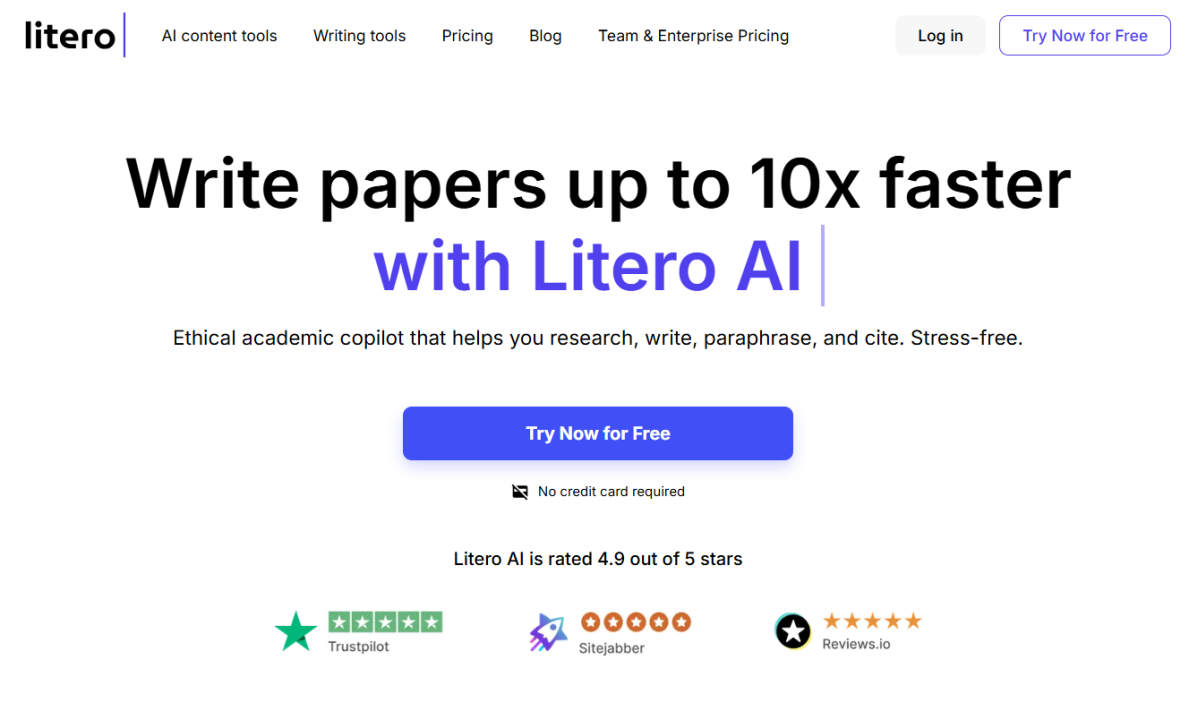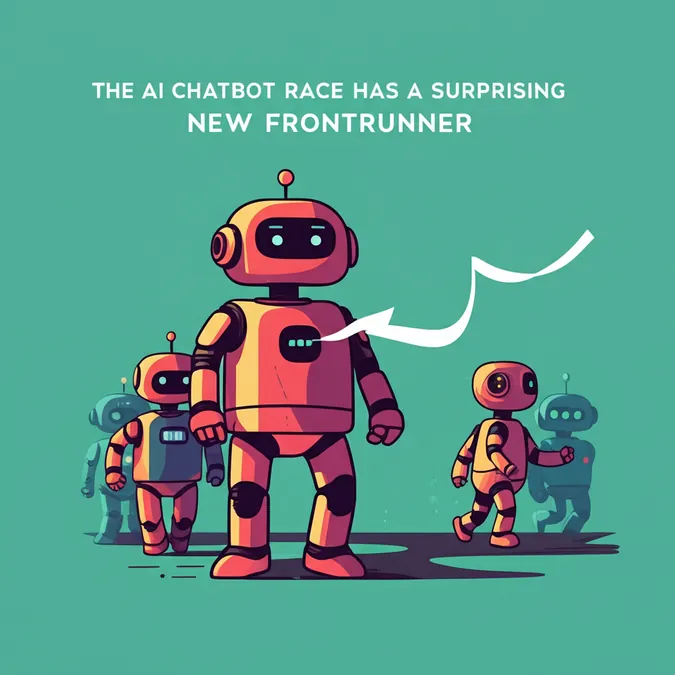Developer Offer
Try ImaginePro API with 50 Free Credits
Build and ship AI-powered visuals with Midjourney, Flux, and more — free credits refresh every month.
The Ultimate AI Writing Tool Showdown for 2025
Introduction to the Modern Academic Challenge
Picture this: it’s 2 AM, you’ve already had three cups of coffee, and that research paper deadline is breathing down your neck like a hungry dragon. Does that sound familiar? Welcome to the modern student struggle, where the battle isn’t just against procrastination—it’s about finding the right AI research paper writer that actually gets you results without compromising your academic integrity.
Here’s the thing: not all AI writing tools are created equal. Some students are still wrestling with basic chatbots that spit out generic stuff. At the same time, others have discovered specialized platforms that understand the nuanced world of academic writing. Today, we’re diving deep into three heavyweight contenders: Jenni AI, ChatGPT, and Litero AI.
After months of testing these tools across dozens of research projects (and countless late-night writing sessions), we’re here to give you the naked truth about which AI research paper writer deserves a spot in your academic toolkit. Spoiler alert: the winner might surprise you.
The Current AI Writing Landscape
Let’s get real—the AI writing space has exploded faster than a student’s stress levels during finals week. But here’s what most people don’t realize: using a general-purpose AI for academic writing is like bringing a butter knife to a sword fight. Technically, it’s a tool, but you’re probably going to lose. Generic isn’t good enough.
Academic writing demands precision, proper citations, adherence to style guides, and the ability to synthesize complex research. It’s not just about putting words together—it’s about crafting arguments that would make your professor nod in approval rather than reach for their red pen.
That’s where specialized academic AI tools come in. But with so many options flooding the market, how do you choose the right one?
Meet the AI Writing Contenders
1️⃣ Jenni AI
Jenni AI markets itself as the academic writer’s best friend, and honestly, it’s got some impressive credentials. Jenni offers features like:
- Citation management that actually works with multiple formats.
- Research assistance that can pull from academic databases.
- Plagiarism checking that is built right into the platform.
- Templates for various academic document types.
The interface feels polished, and the learning curve isn’t too steep. We’ve seen students produce solid first drafts using Jenni’s guided writing approach.
2️⃣ ChatGPT
We all know that ChatGPT is the tool that launched a thousand thoughts about AI taking over the world. While it wasn’t designed specifically for academic work, its sheer versatility has made it a go-to for many students. Its strengths are these:
- Conversational interface that feels natural.
- Broad knowledge base spanning countless topics.
- Creative problem-solving for complex questions.
- Zero learning curve – if you can text, you can use ChatGPT.
But here’s where things get tricky: ChatGPT’s general-purpose nature can be both a blessing and a curse. Even with the recent release of the GPT-5 model, fundamental challenges remain. Hallucinations persist, creating fake citations and stating incorrect facts that could ruin your credibility. While GPT-5 shows better reasoning, it still can’t access real-time academic databases, leaving you to play detective with every piece of information it provides.
3️⃣ Litero AI
Now, let us tell you about Litero AI—the absolute winner of this round in our humble opinion. After testing dozens of AI writing tools, Litero consistently delivers something different: it actually understands the academic writing process from research to final citation.

What sets Litero apart:
- Integrated research capabilities that connect directly to scholarly databases with up-to-date sources (2020-2025).
- Real-time fact-checking to maintain academic integrity.
- Advanced citation automation that handles even the trickiest sources.
- Subject-specific optimization that adapts to different academic fields.
- Built-in AI assistant Literka that offers brainstorming assistance and emotional support.
A Deep Dive into Research Capabilities
When it comes to research capabilities, this is where we separate the contenders from the pretenders.
✅ Jenni AI’s research game
Jenni does a decent job with research integration. You can pull sources, and the platform helps organize them reasonably well. The citation features work most of the time, though we’ve noticed some hiccups with newer or more atypical sources. It’s solid, but not spectacular.
✅ ChatGPT’s research reality check
Here’s ChatGPT’s Achilles heel: it can’t actually access current databases or verify information in real-time. You’ll get eloquent responses based on its training data, but fact-checking becomes your responsibility entirely. For academic work, this is like playing Russian roulette with your GPA.
✅ Litero’s research revolution
This is where Litero AI absolutely shines. The platform doesn’t just help you write—it actively assists in the research process. Need sources on climate change policies from the last two years? Litero can pull from academic databases, verify information, and even suggest related research you might have missed.
We’ve seen students cut their research time in half while actually improving the quality of their sources. One user even told us they discovered two breakthrough studies for their thesis that they never would have found manually.
Comparing Writing Quality and Academic Integrity
Now, let’s talk about the elephant in the room: academic integrity. Using an AI research paper writer shouldn’t mean sacrificing your ethical standards.
📍 The quality question
Jenni AI produces solid academic writing with proper structure and tone. The output feels academic without being overly stiff. However, the writing can sometimes feel formulaic, like it’s following a template.
ChatGPT can produce incredibly engaging content, but it often lacks the specific academic rigor required for research papers. The writing might be compelling, but it doesn’t always meet academic standards for evidence-based arguments.
Litero AI strikes the sweet spot between engaging and academically rigorous. The platform understands different academic writing styles and helps you develop your own voice rather than replacing it.
📍 The integrity factor
Here’s where Litero really stands out. Instead of simply generating content, it guides you through the writing process while ensuring everything remains authentically yours. The platform includes:
- Transparency features that show exactly how AI assistance was used.
- Originality verification to prevent accidental plagiarism.
- Source attribution that maintains proper academic credit.
- Writing process documentation for complete transparency.
Evaluating User Experience and Learning Curve
Nobody wants to spend hours learning a new tool when they should be writing. Let’s look at the learning curves.
💡 Jenni AI: Smooth sailing
Jenni offers a clean, intuitive interface that most students pick up quickly. Its guided writing process helps structure your thoughts, and the templates provide a good starting point.
💡 ChatGPT: Instant gratification
ChatGPT wins points for simplicity. Type a question, get an answer. But for complex academic projects, this simplicity can become a limitation.
💡 Litero AI: Powerful yet accessible
Litero manages to pack sophisticated features into an interface that doesn’t overwhelm. The onboarding process actually teaches you better academic writing practices while you learn the tool. It’s like having a writing tutor built into your AI assistant.
Feature Comparison Table
| Platform | Research support | Citation support | Unique voice/style preservation | Adherence to academic integrity policies |
|---|---|---|---|---|
| Jenni AI | ✅ | ✅ | ❌ | ✅ |
| ChatGPT | ❌ | ❌ | ✅ | ❌ |
| Litero AI | ✅ | ✅ | ✅ | ✅ |
The Verdict: Why Litero AI Is the Top Choice
After extensive testing, Litero AI emerges as the clear winner for serious academic work. Here’s why:
- Superior research integration: Litero makes research central to the writing process, seamlessly moving from discovery to citation with unmatched source integrity.
- Authentic academic voice: It helps you develop your own academic voice while ensuring your arguments are well-supported and properly cited.
- Future-proof features: The platform continues evolving with updates like collaborative peer review and advanced plagiarism prevention.
- Ethical AI use: Litero provides transparency and ethical guardrails that let you leverage AI power while maintaining integrity, as detailed in their AI in Education Codex.
How to Choose the Right AI Tool for You
Here’s our recommendation based on different use cases:
➡️ Choose Jenni AI if you need basic academic writing support and don’t require extensive research capabilities.
➡️ Choose ChatGPT if you’re doing creative or exploratory writing where academic rigor isn’t the primary concern.
➡️ Choose Litero AI if you’re serious about academic success, need comprehensive research support, and want an AI tool that grows with your academic journey.
The Future of Academic AI Writing
The academic AI landscape is evolving rapidly. We’re seeing trends toward:
- Better integration with institutional systems
- More sophisticated plagiarism prevention
- Enhanced collaborative features
- Subject-specific AI specialization
Thanks to its innovative features, Litero AI is already ahead of these trends, positioning itself as the platform that will define academic AI use in 2025 and beyond.
Getting Started with an AI Writing Assistant
Ready to revolutionize your academic writing process? Here’s your action plan:
- Identify your primary needs: Research support, writing assistance, or citation management?
- Start with a trial: Most platforms offer free trials—take advantage of them.
- Begin with smaller projects: Test your chosen tool on smaller assignments before tackling major papers.
- Develop your workflow: Integrate AI assistance into your existing writing process.
- Stay updated on policies: Keep track of your institution’s AI use guidelines.
The AI Writing Revolution Has Arrived
The question isn’t whether AI will transform academic writing—it already has. The real question is whether you’ll choose tools that enhance your academic journey or simply generate content that lacks your unique perspective.
Platforms like Litero AI represent the future of ethical, effective academic assistance. They don’t replace your critical thinking—they amplify it.
The 2025 academic landscape belongs to students who master AI as a research and writing partner, not a replacement. Choose your AI research paper writer wisely, and watch your academic performance soar while maintaining the integrity that defines true scholarship.
Ready to experience the Litero difference? Your next breakthrough paper is just a click away.
Compare Plans & Pricing
Find the plan that matches your workload and unlock full access to ImaginePro.
| Plan | Price | Highlights |
|---|---|---|
| Standard | $8 / month |
|
| Premium | $20 / month |
|
Need custom terms? Talk to us to tailor credits, rate limits, or deployment options.
View All Pricing Details

